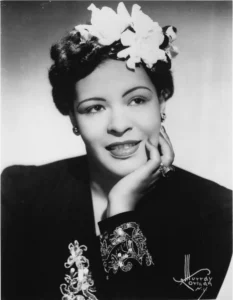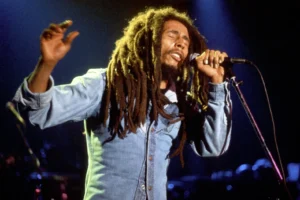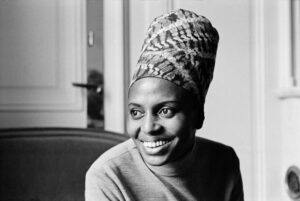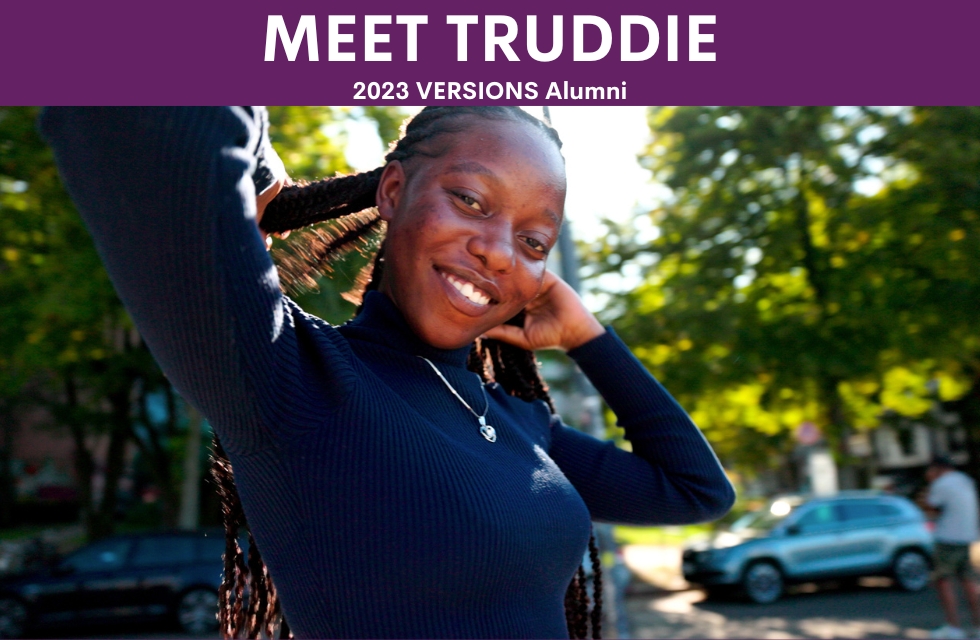"Now, I believe in myself. I trust my soul." In this series, we're highlighting our…

3 Black Icons Who Used Their Music to Change the World
From rap and hip hop to RnB and more, Black artists are recognized for their musical talent and power to influence the masses. However, despite being at the forefront of culture and musical trends, Black artists have historically been stripped of recognition and profits. Often, their innovations were capitalised by white artists who popularised and profited off of Black art.
Furthermore, many Black artists became political targets of their time because their music was so influential. Their songs exposed injustices and had the power to cripple corrupt governments when they reached large enough audiences. This created problems for the high-powered individuals trying to uphold oppressive systems.
Today, Darkspark is showcasing three international artists who’ve used their music as a tool for activism throughout history. Like so many others, these artists have helped pave the way for freedom and peace and continue to inspire movements long after their last breath.
Billie Holiday

Dubbed one of the greatest jazz singers of her era (the 1930s to 1950s), people still pause to listen when a Billie Holiday song plays. Her voice is unmistakable with its magnetic energy and sometimes haunting ability to send a chill down your spine. Despite passing away in 1959, Holiday was considered one of the most powerful voices of the Black Arts Movement (the cultural arm of the Black Power Movement) in the ‘60s to ‘70s.
At the beginning of her career, Holiday was the first female African American singer to work with an all-white orchestra. Unsurprisingly, many white audiences protested her music and Blackness, which prompted her to leave out of frustration. While she didn’t stop singing, it wasn’t until she stumbled across the poem “Strange Fruit” and turned it into a song that she found her true audience. Her stirring interpretation of “Strange Fruit” invoked strong emotions among listeners during its debut and to this day.
The poem, now song, depicted lynchings of Black Americans in the US south. The controversy it sparked at the time, and the impact it still holds today, have scholars agreeing that it’s widely considered the first protest song of the civil rights movement.
Holiday dared to continue performing the song even amid protests from objectors. Her record label at the time, Columbia, refused to let her record the song out of fear of offending white Southerners. However, the Commodore label took it on and turned it into a hit.
Though it wasn’t just southern white citizens who often found her music diabolical–she also had enemies in high places. Billie Holiday, like many Black artists, had a history of being targeted by the government. As she pushed powerful messages that reminded listeners of continued anti-Black atrocities, government officials began to target her. The Federal Bureau of Narcotics (FBN) commissioner at the time, Harry Anslinger, decided to go after her for drug-related charges and warned her not to keep singing “Strange Fruit.” He believed that she encompassed everything wrong with America and made it his mission to stop her.
Billie Holiday put the Black experience at the forefront of political and social conversations nationwide, even when record labels and white audiences objected, and government officials commanded her to stop. Holiday’s songs were a protest for Black lives, reminding us of historical horrors and urging us to keep pushing for equity. As a result, her legacy perseveres in music, politics, and social movements.
Bob Marley

Often identified by his dreadlocks and contagious smile, Bob Marley hails as one of the most influential artists ever. In fact, Time magazine named his album Exodus the best album of the twentieth century.
Marley was born to a white father and a Black mother in a time of heavy political conflict in Jamaica. As he grew up, he dedicated his music to the Black diaspora – Black displacement and struggles as a result of the slave trade and colonialism – and uniting political extremes.
Bob Marley sang about economic, political, and social change and wasn’t afraid to be loud about it. When he sang, his lyrics exposed oppressive systems built to keep people of colour down. But Marley didn’t just sing about injustice; he also infused his lyrics with messages of peace and unity. Marley believed so strongly that his music had the power to make a change that he risked his life to spread these messages. He’d been targeted and shot just two days before a political concert he was scheduled to perform at, but that didn’t stop him. People asked Marley how he could perform after such a dangerous encounter, and he said, “The people who are trying to make this world worse aren’t taking a day off. How can I?” Marley worked tirelessly to bridge the gap between political rivals and inspire people to move toward a more peaceful future.
While there were no arrests for the shooting, some claim the CIA targeted Marley. It’s speculated that the CIA backed the Jamaican Labour Party and believed Marley to favour the Peoples National Party (which was linked to Cuba and Russia). As a result, he was supposedly seen as a direct threat to American interests. Further yet, unverified sources claim a CIA agent named Bill Oxley gifted Marley a shoe with a radioactive nail that cut his foot and resulted in cancer. And because Marley was Rastafarian, he refused doctors’ recommendations to amputate his foot, which some people think was Oxley’s plan all along.
Regardless of the controversies, Marley was indisputably in the eye of politics–however, he was careful to preach peace rather than encourage division and further conflict. As an international superstar – and the first Black superstar – he was so impactful because he pushed for change. Through music, he embraced all people under one purpose.
Miriam Makeba
 South African and worldwide icon Miriam Makeba is the most influential musical activist who never intended to be one. Lovingly known as Mama Africa, Makeba claimed, “I’m not a political singer. I don’t know what the word means. People think I consciously decided to tell the world what was happening in South Africa. No! I was singing about my life.”
South African and worldwide icon Miriam Makeba is the most influential musical activist who never intended to be one. Lovingly known as Mama Africa, Makeba claimed, “I’m not a political singer. I don’t know what the word means. People think I consciously decided to tell the world what was happening in South Africa. No! I was singing about my life.”
Regardless of her intentions, Makeba was vital in the international battle against Apartheid. She was a musician and actress during this time and earned international recognition for her crafts. Makeba was even flown from South Africa to Venice to accept an award for one of her films, Come Back, Africa. Unfortunately, her role in the controversial 1959 anti-Apartheid film brought just as much negative attention to South African authorities as it brought her international praise. When she attempted to return home, Makeba discovered her passport had been revoked– she was effectively barred from her own country.
Despite being exiled from her homeland, Makeba fought to expose the injustices her people faced. In addition to singing about South African realities, she was invited to speak in front of the United Nations General Assembly in 1963, where she testified about Apartheid. As an early thirty-year-old who’d experienced the brutalities of the system, Makeba delivered a powerful speech that resonated with both the UN and the international audience. Unsurprisingly, South African authorities responded by taking away her South African citizenship, and Makeba was forced to find a home in the United States.
Mama Africa did well in the US and became an international superstar. However, things took a turn for the worse when she married the American Black Panther leader, Stokely Carmichael. Some people saw her concerts as a way to fund the party efforts, and Makeba’s concerts were cancelled rapidly. She was eventually forced to exile in Guinea and only returned to South Africa after Nelson Mandela was released in 1990, where she became an icon of the resistance.
Miriam Makeba lived a life fraught with challenges–from Apartheid and exile from her home country to marrying another political leader and being forced to relocate once again. Yet, through it all, Makeba harnessed her voice and influence to create music and give speeches that exposed persecution. By speaking the unfiltered truth, Mama Africa helped lead the fight against Apartheid.
3 Icons, 1 Fight
Billie Holiday, Bob Marley, and Miriam Makeba suffered similar injustices for using their voices and art for social change. Despite coming from different eras, countries, and genres, they were all subjected to political agendas.
These Black artists’ life experiences crossed intersections of oppression. And by simply speaking their truth (or singing it, in this case), Holiday, Marley, Makeba, and countless others harnessed the power to liberate society.




